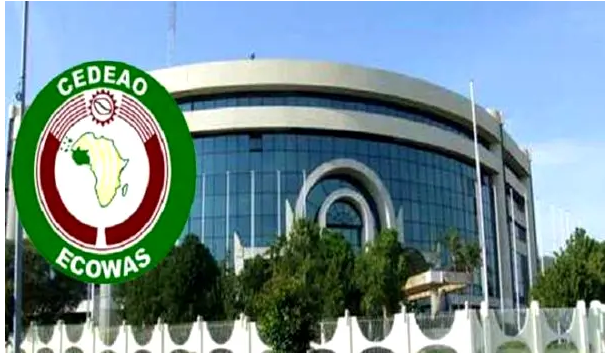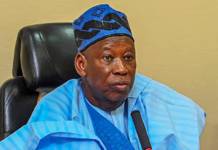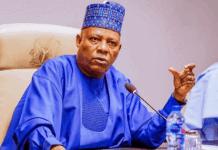*Says Nigeria will receive over 50% of Global Water Fund
CHIGOZIE AMADI
The Economic Community of West African States (ECOWAS) will review the implementation of community levy in the region at the ongoing 35th meeting of the commission’s Committee on Administration and Finance.
This is as the subregional bloc has said Nigeria will get at least 55 per cent of the global water fund.
ECOWAS had adopted a community levy of 0.5 per cent on all imports into the region, rather than the contribution from members.
However, there were challenges to the implementation of the protocol adopted in 2014.
Members of the commission’s committee that will review the levy are drawn from the 12-member states as three member states- Mali, Burkina Faso, and Niger Republic had signified their intention to pull out of the 15-member regional bloc.
Members of the committee are in Abuja for the next five days to consider ongoing reform in the commission and the issue of community levy.
Another area the committee is expected to discuss is the commission’s organogram, which has been in use since 2018.
The expected organogram review will touch all ECOWAS institutions, including the community court, community parliament, and the commission.
The review is expected to take into consideration the recent reduction of the number of committees from 15 to 7.
The members have a report of about 100 to 150 pages to consider during the five days.
At the end of the five days, members are expected to adopt the proposal and then pass it to the council of ministers for their perusal and adoption.
In her opening remarks, ECOWAS Commission’s Vice President, Damtien Tchintchibidja, stressed the need for the member-states to adhere to the community protocol, especially the protocol on Community Levy.
She said: “I would like to make an urgent appeal to all member states so that they can comply as quickly as possible with the provisions of the protocol relating to community levy.”She stressed that remittance of community levy will “allow us to ensure the good functioning of institutions and the implementation of projects within the community.”
She also raised the impact the exit of the three countries, Mali, Burkina Faso, and Niger Republic will have on the community levy.
She said: “I would like to remind you that the meeting of this day is held in a challenging context, characterised by uncertainties on a regional and global level.
“The announced withdrawal of our three member states appeals to us all in more than one way.
“We therefore must put everything in place to safeguard our unity, our secular ties, our spirit of fraternity and solidarity, as a result of an inclusive development,” she emphasised.
The chairman of the CAF, Ambassador Emmanuel Awe emphasised the need for members of the committee to sustain efforts in implementing policies and programmes that enhance and promote integration.
Meanwhile, ECOWAS has said Nigeria will get at least 55 per cent of the global water fund.
ECOWAS Commissioner for Infrastructure, Energy and Digitization, Sediko Douka, disclosed this at the 5th ordinary session of the Ministerial Monitoring Committee (MMC), meeting for a framework for coordination and monitoring of Integrated Water Resources Management, IWRM, in Abuja.
He said this is based on Nigeria’s large population and contribution to the regional bloc’s levy.
Douka explained that West African states have been committed to integrated water management leading to an action plan in 2000 and a framework in 2001, stressing the need for a new form of water management to tackle water-related problems.
The ECOWAS commissioner stated that the essence of the ministerial monitoring committee meeting was to revitalise cooperation and implementation of the regional water policies for the development of the region.
The Minister of Water Resources and Sanitation, Professor Terlumun Utsev, while declaring the meeting open, called for unity among member-states for the development of the water sector.
“To truly see growth in the sub-region, we need to be united and work as a team, especially when it comes to the management of our water resources, both surface and underground,” he said.

























